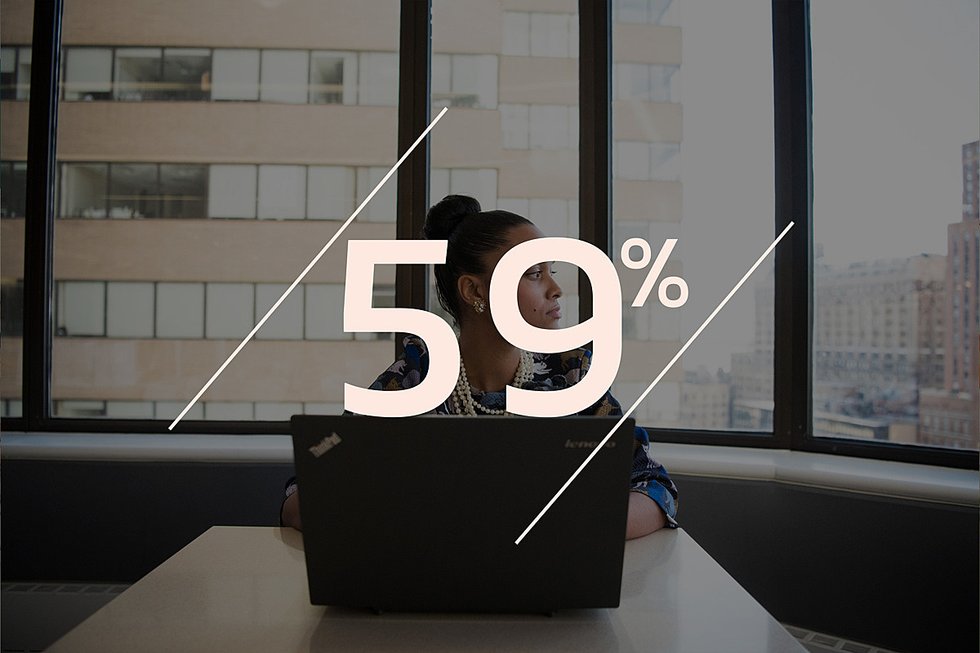59% of women believe that menopause negatively impacts their work
Dec 17, 2019
3 mins


Journalist
Around the age of 50 years, women begin to experience a drastic change in their bodies—hot flashes, insomnia and anxiety—all signs of the onset of menopause. Dealing with this new body chemistry can represent an unsettling disruption in women’s daily routine, including work. Naturally, the impact of menopause in the workplace should be an important discussion, considering it affects half our work force. But menopause continues to be a taboo topic in offices, even though 59% of women report adverse effects on their professional lives in early stages of menopause, according to a CIPD study.
Who does this affect?
Women over 50 are the fastest growing group in the workforce—which should come as no surprise as the retirement age in the UK is fast increasing, with government plans to raise it from 65 to 67 by 2028. At the same time, menopause occurs on average between the ages of 45 and 55, firmly imbedding it as a part of women’s working life. In fact, there are 3.5 million women in the UK working over the age of 50 (NHS), and 8 in 10 menopausal women are in work.
Stigma of menopause
Menopause is no short fleet—it lasts an average of 7 years, and 3 in 4 women experience the uncomfortable symptoms. The most common and pressing issues are trouble concentrating, higher stress levels, trouble sleeping and hot flashes. While bodily changes might warrant some adjustments in working life, 34% of women feel too embarrassed to share their reasons for taking sick leave if it relates to menopause. Women often feel uncomfortable discussing these issues with colleagues that might hold stigmas or struggle to relate, for example if their boss happens to be a younger male.
Discussion in the workplace around menopause can have a huge impact on how women tackle this period of their lives. The CIPD recommends line managers be trained in having sensitive conversations with employees going through menopause. Only 32% of women said that they chose not to share that menopause was the reason behind their sick leave because of an unsupportive manager—it may not always be that employers are unsupportive, just in the dark on how to offer help.
What needs to change?
- Hot flashes– It might sound simple, but can be uncomfortable and distracting. Properly controlling the temperature of work spaces and providing desk fans can go a long way.
- Flexible work hours– Insomnia is a common symptom of menopause, and night after night without any quality shut eye can have adverse effects in the workplace. Offering women the chance to tweak their hours to work around this can be a great help.
- Education and understanding- If everyone in the workplace understands that menopause is a natural and inevitable part of the female life cycle, it’s easier for women to vocalise their needs.
- Dress code- If uniforms are required in the workplace, allowing for menopausal women to make adjustments is a necessity. They may need to switch to something more comfortable, or shed a few layers to deal with hot flashes.
Although there is still a long way to go to integrate menopausal women into the workplace fully, there are things being done to get the ball rolling. British MPs have been vocal on the issue. Labour MP Carolyn Harris says “You wouldn’t dream of having a workplace where people weren’t entitled to certain things because they were pregnant, and it’s exactly the same for women with the menopause. I firmly believe there should be legislation to make sure every workplace has a menopause policy, just like they have a maternal policy”.
We are still in the process of pumping this kind of legislation out here in the UK. The Equality Act 2010, however, has some protections that can help menopausal women. It states that people should not be discriminated against due to their age, gender or disabilities. You are legally within your right to demand provisions to be made for your conditions as someone going through menopause, so speak up! Let’s start conversations and break down the stigma.
Photo: WTTJ
Follow Welcome to the Jungle on Facebook on LinkedIn and on Instagram and subscribe to our newsletter to get our latest articles every day!

More inspiration: Work trends

Workplace influencers: How employee-generated content is changing the game
Who says becoming an influencer means quitting your day job?
Dec 05, 2024

The rise of homeless workers: A hidden crisis fueled by soaring costs
The rising cost of living is putting individuals on the brink of homelessness, even those with full-time jobs ...
Nov 21, 2024

The emotional toll of quitting in Japan—and the role of professional quitters
In Japan, quitting a job transcends professional boundaries, often becoming a deeply emotional and cultural challenge.
Nov 20, 2024

RTO or risk: Are return-to-office mandates harming company culture?
Flexible work policies have become a core expectation for employees and workers are viewing RTO mandates as restrictive.
Oct 30, 2024

Why are workers quitting after getting promoted?
29% of promoted employees quit within six months of their promotion—but why?
Mar 13, 2024
The newsletter that does the job
Want to keep up with the latest articles? Twice a week you can receive stories, jobs, and tips in your inbox.

Looking for your next job?
Over 200,000 people have found a job with Welcome to the Jungle.
Explore jobs